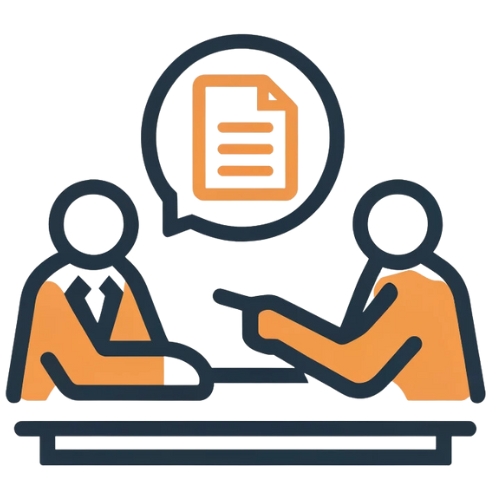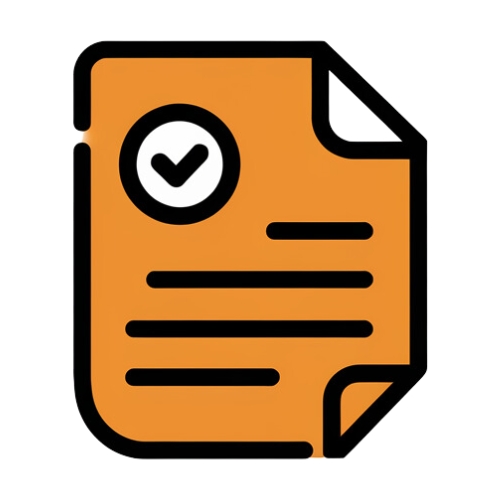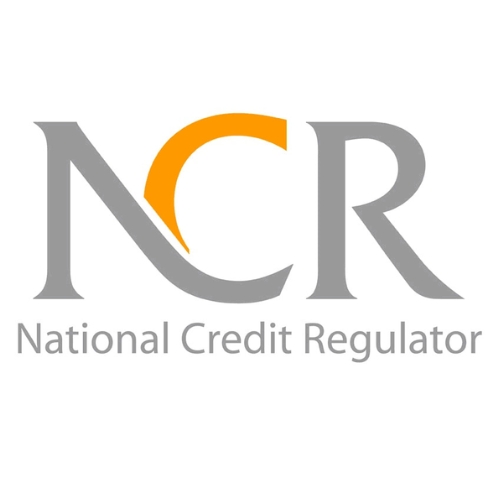
Your financial status can sometimes feel like traversing a maze, especially when it comes to understanding the specifics of debt review. Being under debt review is a significant marker of your financial journey, often indicating a structured approach to managing overwhelming debts. This process involves careful assessment and restructuring by financial professionals to ensure you can meet your obligations without exacerbating your financial strain. But how can you be sure if you are currently under debt review or not? What are the signs or checks you should be aware of to confirm your status?
Key Takeaways
- Debt Review Duration: Typically ranges from 36 to 60 months, depending on the size of your debt and your repayment capacity.
- Process Benefits: Includes lower monthly payments and legal protection, but restricts access to new credit and requires timely payments.
- Employment Checks: Debt review status may appear in credit checks for finance-related roles, which may require your consent.
About Arcadia Finance
Simplify your loan acquisition with Arcadia Finance. Choose from 19 trustworthy lenders who adhere to the National Credit Regulator standards of South Africa, all without any application fees. Experience a streamlined and personalized borrowing process designed for your financial requirements.
What is a Debt Review?
The National Credit Act of 2007 was enacted to protect South Africans from the pitfalls of excessive debt, aiming to prevent individuals from facing personal administration. Registered debt counsellors in South Africa, accredited by the National Credit Regulator, follow stringent ethical standards in their work. The debt review process is a structured approach designed to assist individuals in managing their debt effectively.
Debt review starts with an application to a registered debt counsellor, who will perform a financial assessment to determine your eligibility. If you qualify, you enter debt review, during which your debt repayments are consolidated and reduced, simplifying the process of managing and repaying your debts.
If you want a comprehensive understanding of how debt review works within South Africa’s legal framework, our detailed guide on Debt Review in South Africa breaks down the process, benefits, and obligations.

Duration of Debt Review in South Africa
On average, completing a debt review in South Africa takes between three to five years, or 36 to 60 months. However, some individuals may finish the process more quickly.
Several factors influence the length of debt review:
- Total Debt Amount: Larger debt amounts generally extend the repayment period.
- Monthly Repayment Amount: The amount you can reasonably afford each month affects the duration.
- Interest Rates: Higher interest rates can lengthen the time needed to repay your debt.
- Financial Changes: Any changes in your financial situation during the review can impact the duration.
- Repayment Plan Terms: The agreed-upon term of your restructured repayment plan plays a role.
- Commitment to Repayment: Missed payments can extend the time needed to receive your clearance certificate.
Typically, having more debt means it will take longer to pay off. However, if your income increases, you can reduce the repayment period by using the extra funds to pay down your debt. Similarly, cutting living expenses and redirecting the savings toward debt repayment can also expedite the process.
Your debt counsellor will evaluate your monthly repayment capability. Lower payments will extend the repayment period, while consistent payments and adherence to the plan can help you achieve debt freedom sooner.
Despite the length of the process, becoming debt-free within a few years is often preferable to managing a growing debt burden on your own.
Signs You May Be Under Debt Review
Discovering that you are under debt review can be surprising, especially if you did not initiate the process yourself. Here are some common signs that you may be under debt review:
Changes in Credit Availability
- Declined Credit Applications: If your applications for credit are suddenly being declined, it could indicate that you are listed under debt review. Creditors are legally restricted from extending further credit to individuals under debt review.
- Reduced Credit Limits: Creditors might lower your available credit limits on existing accounts if they receive information that you are under debt review. This measure is taken to prevent further indebtedness.
- Account Closures: In some cases, creditors may close your credit accounts to ensure the repayment of existing debts without the risk of accruing more.
Types of Communications
- Letters or Emails from a Debt Counsellor: Receiving correspondence from a debt counsellor about debt review proceedings is a clear indication that you might be under debt review. These communications may request meetings or documentation regarding your financial situation.
- Notices from Creditors: Creditors might send notices informing you that your accounts have been flagged as under debt review. These notices typically explain the implications and any changes to your account status.
- Calls from Debt Recovery Agents: Although not exclusively a sign of debt review, calls from debt recovery agents can suggest that your creditors are managing your accounts according to debt review protocols.
If you suspect that you are under debt review, it’s important to contact a registered debt counsellor for clarification and guidance on the next steps.
How to Officially Check if You are Under Debt Review
When you’re concerned about whether you’re under debt review, it’s important to verify your status to manage your finances effectively. Here’s how you can officially check your status:

Step 1: Contact Your Debt Counsellor
The first step is to reach out to your debt counsellor. If you have previously engaged with a debt counsellor, you should have their contact details. If not, and you suspect that a debt review process may have been initiated on your behalf, look for any related communications or documentation you received.
When contacting your debt counsellor:
- Verify contact details: Ensure that you are contacting a registered debt counsellor. You can check their credentials through the National Credit Regulator (NCR).
- Prepare your information: Have your ID number, account details, and any relevant financial documentation available.
- Ask relevant questions: Confirm whether you are under debt review, the status of the process, and any steps you need to take.

Step 2: Check With Credit Bureaus
Your debt review status will be recorded with the credit bureaus in South Africa. You are entitled to one free credit report per year from each of the major credit bureaus—TransUnion, Experian, Compuscan, and XDS. Requesting this report can provide insight into your debt review status and other important financial details.
To obtain your credit report:
- Contact the credit bureaus: You can request your report online, via phone, or by visiting their offices.
- Provide necessary documentation: Typically, you’ll need to provide your ID number, proof of address, and possibly answer additional security questions to confirm your identity.
- Review your credit report: Look for any indications of a debt review or related remarks on your profile.
Comparison of Credit Bureaus
Here’s a table comparing the major credit bureaus in South Africa. This comparison will include key details such as their contact methods and how you can request a credit report from each:
| Website Link | Contact Number | How to Request Report | Turnaround Time for Report |
|---|---|---|---|
| TransUnion | 0861 482 482 | Online, Phone, In-Person | Instant online; 5-10 days by post |
| Experian | 0861 105 665 | Online, Phone | Instant online; 5-10 days by post |
| Compuscan | 0861 514 131 | Online, Phone | Instant online; up to 7 days by post |
| XDS | 0860 937 000 | Online, Phone, In-Person | Instant online; 7-10 days by post |

Step 3: Consult the National Credit Regulator (NCR)
The National Credit Regulator (NCR) oversees the debt counselling process in South Africa and can provide definitive information regarding your debt review status.
To consult with the NCR:
- Contact them directly: Reach out via their customer call centre or email.
- Provide your details: Have your personal information ready for verification, similar to when dealing with your debt counsellor.
- Request information: Specifically inquire about your debt review status and any actions required on your part.
By following these steps, you can determine whether you are under debt review and understand how to manage your situation effectively. Regular checks and maintaining open communication with your debt counsellor and the NCR are important for navigating the process smoothly.
Wondering what happens if you miss a payment under debt review? Understand the serious consequences of skipping a debt review payment and how it could reverse all the progress you’ve made toward financial stability.

Steps to Take if You Are Under Debt Review and Didn’t Know
If you discover that you are under debt review without your prior knowledge, take the following steps:
- Verify the Accuracy of the Status
Contact your debt counsellor, if you have one, or the National Credit Regulator (NCR) to confirm that the information is correct. Mistakes can occur, so it’s important to address any errors promptly.
- Understand Your Rights and Responsibilities
Being under debt review means you cannot take on additional debt. Familiarise yourself with the restrictions and obligations imposed by the debt review process.
- Request Documentation
Obtain all relevant documents related to your debt review. This includes any court orders, if applicable, and agreements made with your creditors.
- Attend Required Meetings or Consultations
You may need to meet with your debt counsellor to discuss your current status and future steps. Be proactive in these meetings and request a detailed plan on how to proceed.
- Monitor Your Payments
Ensure that all payments are made according to your restructured payment plan. Keeping track of these payments is crucial for clearing your debt review status.
Conclusion
It’s important to verify your debt review status through your credit report and comply with the terms of your repayment plan to avoid complications. While debt counselling can be highly effective, it also comes with restrictions, including a prohibition on opening new credit accounts, highlighting the need for careful management throughout the review period.
Frequently Asked Questions
Debt review in South Africa generally lasts between 36 to 60 months. The duration depends on factors such as your total debt, monthly repayment ability, interest rates, and any changes in your financial situation. Individuals with smaller debts and consistent payments may complete the process sooner.
To check if you are under debt review, request your credit report from a credit bureau like TransUnion or Experian. Your debt review status will be clearly indicated on the report. If you have recently received a clearance certificate, ensure your credit report reflects this update.
The length of the debt review process is influenced by several factors, including the total amount of debt, the affordability of monthly repayments, interest rates, and any changes in your financial situation. Consistent payments and an increase in income can potentially shorten the repayment period.
Employers may perform credit checks, but they must obtain your explicit written consent. Such checks are generally only permissible for roles involving money or financial management. Most employers will avoid credit checks unless absolutely necessary due to the cost and time involved.
Debt counselling provides several benefits, including legal protection from creditor actions, reduced monthly payments through consolidation, expert financial guidance, and protection from additional interest charges. It also ensures that your assets are safeguarded while you meet your repayment obligations.
Fast, uncomplicated, and trustworthy loan comparisons
At Arcadia Finance, you can compare loan offers from multiple lenders with no obligation and free of charge. Get a clear overview of your options and choose the best deal for you.
Fill out our form today to easily compare interest rates from 19 banks and find the right loan for you.


